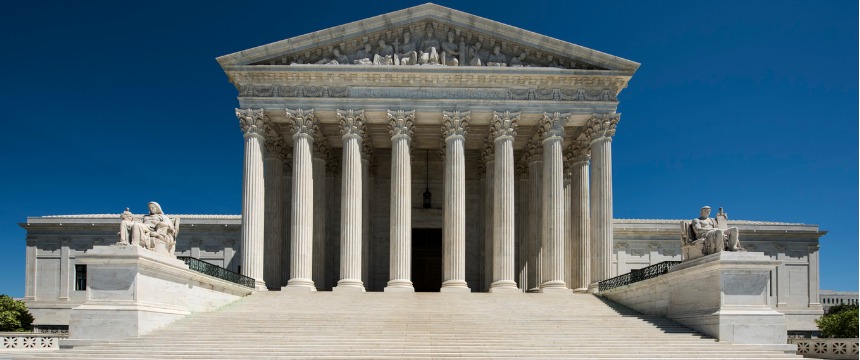
In our July 15, 2024 post, we analyzed the Supreme Court’s landmark case Loper Bright Enterprises v. Raimondo and the opportunities the decision might offer False Claims Act (FCA) defendants. As a brief reminder, Loper Bright overturned Chevron, U.S.A., Inc. v. Nat. Res. Def. Council, Inc., which required judicial deference to administrative agency interpretations of statutes in certain instances. We noted, “Chevron was a 40-year bedrock of administrative law, and Loper Bright is a seismic shift to the landscape of agency enforcement.” Further, we predicted Loper Bright has the potential to “shake up” FCA cases.
In the first few months since Loper Bright was decided, courts are already grappling with these exact questions. Briefs filed simultaneously last week in U.S. ex rel. Kyer v. Thomas Health System, Inc. provide some early indications of arguments that may be advanced in FCA cases.
The relator in Kyer alleges the defendant health system submitted false claims by violating regulations under the Stark Law, which prohibits Medicare payment for referrals related to certain financial transactions involving physicians. The defendant moved to dismiss, and the Court determined it could not decide the motion without considering Loper Bright.[1] The Court noted that, “[o]ver the last 30 years, the Stark Law has grown complex, nuanced, and reliant on agency regulation to define key terms and safe harbors.” Recognizing that both the relator and defendant based their claims and defenses on those very same agency regulations, the Court reflected on the overturned Chevron analysis and noted, “[I]n the past, I could simply defer to an agency’s interpretation of a statute without too much handwringing over the province of the court versus the expertise of an agency. No longer.” The Court also noted that, after Loper Bright, “I must ensure that the Stark regulatory scheme is consistent with the power given by Congress and the statute as it was signed into law. Such is Loper Bright’s instruction.” The Court therefore ordered supplemental briefing on Loper Bright’s impact on the “statute-regulation relationship” to determine whether defendant violated regulations described as a “labyrinth of multipart compliance requirements where the exception-to-the-exception-to-the-exception-is the norm.” (Citations omitted.)
The parties filed initial briefs on October 4, 2024. Interestingly, both the defendant and relator argued Loper Bright was not really implicated because (a) the Stark Law is not ambiguous, and the Court need not resort to any agency interpretation to apply its provisions; and (b) if it were necessary, the Stark Law explicitly permits CMS to issue the regulations at issue. (Each side, of course, reads this “unambiguous” language in a diametrically opposed manner, in support of their respective positions.) The defendant health system largely stops there and argues the relator does not state an FCA claim. The relator, however, offered a number of additional arguments to limit any potential reach of Loper Bright to the case, including that Loper Bright only controls agency interpretations of statutes and not of an agency’s own regulations, and the agency’s regulatory interpretations here were reasonable.[2]
Response briefs are due on October 18, 2024, and the Court will then likely decide the Loper Bright question when ruling on the defendant health system’s pending motion to dismiss.
A different court recently faced similar issues with FCA claims arising from alleged violations of the Medicaid Drug Rebate Statute in U.S. ex rel. Sheldon v. Forest Laboratories, LLC.[3] Noting that Medicaid statutes and regulations have been called “among the most completely impenetrable texts within human experience,” the Court in Sheldon also recognized the case implicated Loper Bright’s new regime. As with the Kyer briefing discussed above, however, both the relator and defendant argued the statute itself was clear, and no reliance on regulations was necessary. The Sheldon Court was therefore able to avoid the issue, ruling it did not defer to the agency’s interpretation of the Rebate Statute when it determined the defendant did not have knowledge of falsity (scienter) required to violate the FCA.
We expect these issues to continue to arise. Having predicted a Loper Bright “shake up,” we will continue to report on challenges to clams by FCA relators based on alleged violations of agency interpretations of complex statutes.
[1] Civ. Ac. No. 2:20-cv-00732, U.S. Dist. Ct. SD W. Va. (Slip opinion, September 12, 2024).
[2] The relator also argued Loper Bright does not apply because she brings FCA claims but does not challenge agency action. As discussed in our last post, defendants should consider challenging the agency’s regulation directly as an improper interpretation of the statute where possible.


